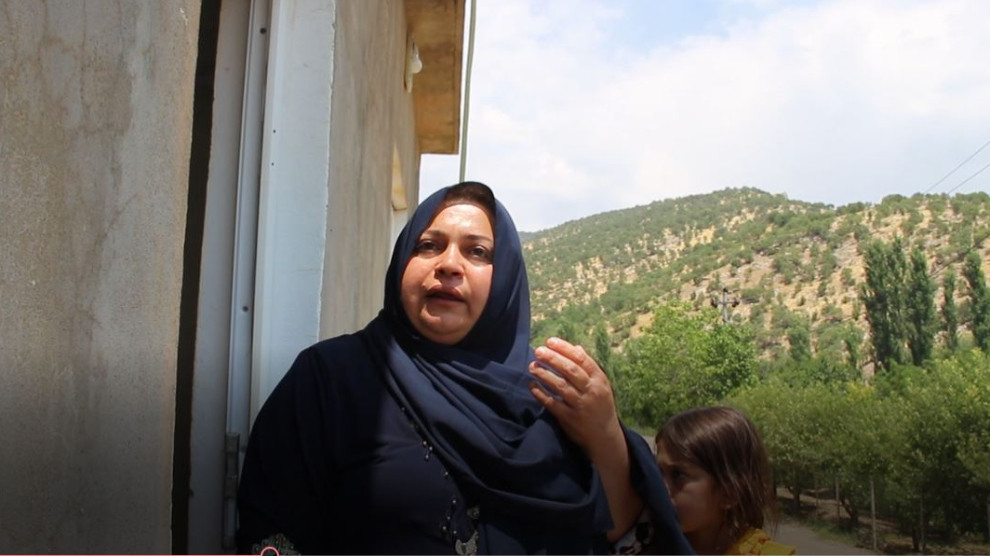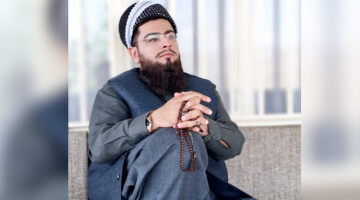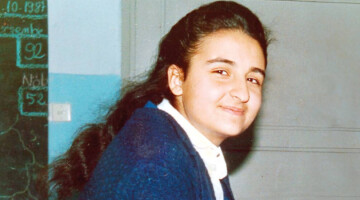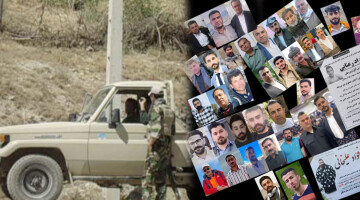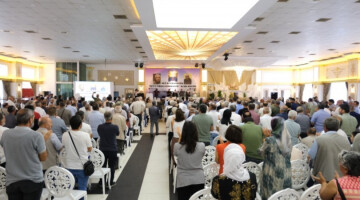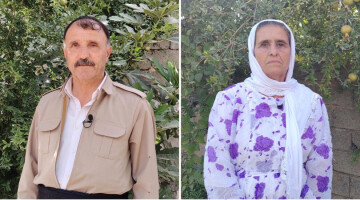The population of Southern Kurdistan is another face of the resistance of Heftanin. It is probably the most innocent face and one that is difficult to describe. You can do whatever you want, a description of these people can never be complete. For years they have experienced every possible kind of pain. A few days ago I was in Evlehe, a village in the Pirbula area of Heftanin. It is located just below the Coordinate Hill. This hill has a strategic importance in Heftanin, because it is right in the middle. Because it is very high, all movements in the region can be controlled from there, especially the surrounding villages. The occupying forces want to take this hill. There are still occasional clashes between the guerrillas and the occupying forces.
For almost two weeks now, attack helicopters have been sifting through the Coordinate hill every night, after which troops are airdropped. As soon as the occupying forces move, the guerrillas strike. That's why they can't get any further and why one village is bombed every day. A few days ago, Evlehe was also bombed. When I was in the village, shells had just been fired on the houses. Because people don't leave the village and their houses, they are bombed. The enemy cannot fight the guerrillas and is attacking the villagers.
This has been going on for years. Remember how our beautiful Dersim was depopulated. How those who refused to leave Dersim were killed. You remember the Dersim massacre of 1938? The great genocide. In an area where the villages have always preserved their culture, language, way of life and everything that made them what they were. Such places are always attacked by those who hate these idiosyncrasies. In the Dersim massacre, everything that makes up the way of life in Kurdistan are wanted wiped out, broken, fragmented and dispersed: the culture connected to the ground, the hearts fused with the mountains. The equality between woman and man. Efforts were made to make no one remember the name, language and faith of Dersim anymore. First the villages were depopulated. Those who did not want to leave were burned together with their village.
"Our mountains have been bombed for years"
How courageously resistance was mounted and fought there was told by eyewitnesses only years later. They saw how the women resisted and that resistance is innate in Kurdish women, but they did not want to admit it to themselves. None of the military personnel involved as eyewitnesses or perpetrators has ever been punished. They committed suicide, left the army or became torture machines. They were all murderers. However, the expulsion from their homeland and the burning down of the villages has not changed the fact that these people are Kurds and that the burnt and bombed landscape is Kurdistan.
And now the same is happening in Southern Kurdistan. I had tea in Evlehe with a woman whose house was bombed. These are her words: "These mountains do not belong to the Turks, how will they live here? Every day, water is brought to them by helicopters, even their positions are transported by helicopters. They can only stay in the mountains by force. The guerrillas have transported the water on their backs, we have seen and experienced this. These mountains belong to us. We do not leave our villages. They must leave. This land belongs to us. Even my little son knows that. Every day, a government man from Southern Kurdistab comes here. They say we should tend our gardens in the morning and go somewhere else in the evening. The Turks told them that. We work in the house and garden and in the evening they come and bomb us.
This area has been bombed for years, every night for years there have been Cobra helicopters in the air above us. The Turkish state doesn't leave us alone one day. Can't the world see that? Don't the Turkish people see it? The Kurds are at the side of all peoples in the most difficult situations, why is everyone silent now? The soldiers must leave the mountains because these mountains are ours. If anyone has to go, it's them and not us."
It is said that you don't have to study and read books to understand the feelings of a mother. If you want to know something about fascism, it's enough to live in Kurdistan.

